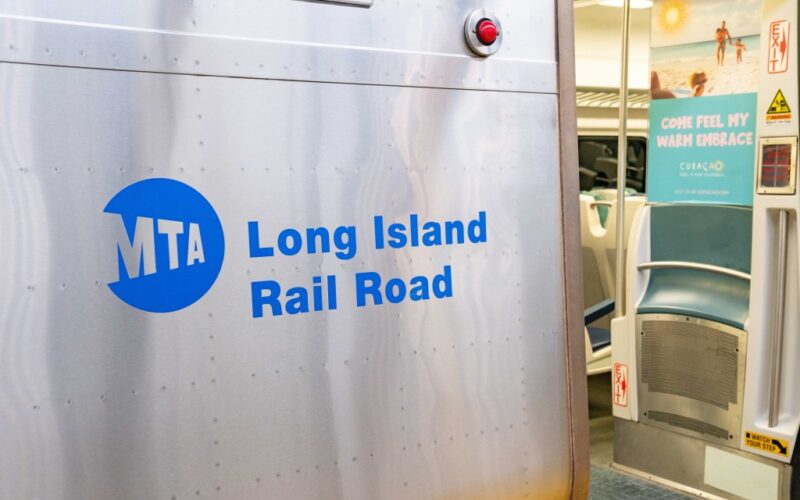A group of labor unions is threatening to shut down the Long Island Rail Road, the nation’s busiest commuter rail operation, with a strike late next week if officials don’t surrender to their demands. But instead of capitulating, Gov. Hochul can keep trains running: she can enforce New York’s ban on public employee strikes.
The Empire State has never allowed public employees to walk off the job and state law has long explicitly banned strikes. The 1967 Taylor Law reflects a basic recognition of the difference between working for the government — providing essential services — and in the private sector. The LIRR doesn’t turn a profit, or pay dividends. It’s just another public agency within the MTA, another public agency.
But LIRR is treated differently due to a wrinkle in federal law covering railroads, which has long been seen as pre-empting the Taylor Law (and its strike ban). The federal Railway Labor Act instead allows railroad unions to strike in certain circumstances, and LIRR unions have long used that to their advantage.
The constant threat of strikes on the LIRR makes it tough for management to push back on union demands, let alone to make the operation more efficient. LIRR has what are almost certainly the highest-paid commuter rail employees in the nation. A sizable number collect more than $100,000 annually in overtime alone.
But instead of confronting this profligacy and risking a strike, the way a private-sector company must to remain competitive, LIRR and MTA management has been able to ask riders and taxpayers for more money. And the unions know this.
LIRR bloat was part of why downstate businesses got stuck paying the MTA payroll tax and it’s pushed up fares as well. High operating costs, on both the subway and commuter train lines, helped justify the congestion pricing toll now hitting drivers entering Manhattan.
The unions’ current demands haven’t been publicized, but they’ve rejected the LIRR’s offer for 9.8% raises over three years, outpacing inflation while preserving LIRR’s platinum-clad benefits. They’ve also balked at suggestions for changes to work rules responsible for the agency’s eye-popping overtime figures, and they’re preparing to shut down service as soon as Sept. 18.
But here’s the thing: Hochul and LIRR management have been dealt a much better hand than past governors.
That’s because the strike ban can be applied to the LIRR. The agency tried to use the law in the late 1970s, but later lost at the U.S. Supreme Court. A big reason: the LIRR was both a commuter and a freight operation.
But things have changed: the LIRR privatized its freight operation in 1997. It’s now exclusively a commuter service, operated exclusively in New York by a New York State agency. The argument for applying federal rules — that interstate commerce is involved — is weaker than ever.
A similar situation played out on Staten Island around the same time as the LIRR case but with a very different outcome.
The Staten Island Railway had been privately built and run before being publicly acquired and run by the MTA. But when MTA officials tried to enforce the Taylor Law, they were successful. A three-judge federal appeals court panel (including future Supreme Court Justice Ruth Bader Ginsburg) sided with the MTA in 1988, noting that Congress had drawn a distinction between a railroad’s past use (as part of an interstate freight system) and its current use (as a government-run commuter service).
Instead of being bullied by LIRR unions, Hochul and the MTA’s leadership should stick up for riders and taxpayers. They should immediately invoke their powers under Civil Service Law sections 210 and 211 to prevent a strike.
Since the unions have already made the threat, there is adequate evidence and cause to get a court order preventing them from going through with it. LIRR unions would face crippling financial penalties and their leaders would risk jail time. Both were imposed on Transport Workers Union Local 100, which led the illegal 2005 subway strike against New York City, and subsequently had to sell its headquarters.
Legal wrangling is inevitable any time state and federal jurisdiction overlap, but state officials have the facts on their side. Management — and taxpayers, and riders — are likely to prevail.
In that respect, Hochul has a chance to not only keep the Long Island Rail Road running, but also to get its finances and operations on a more sustainable track.
Girardin is a fellow at the Manhattan Institute.








